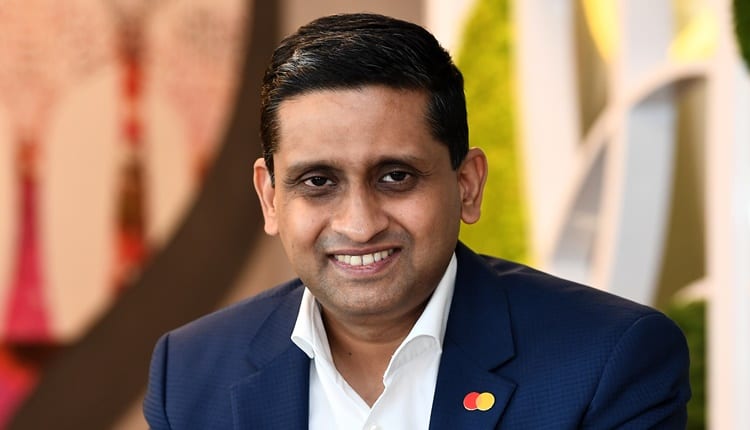While some may cite demonetisation, and others cite tech maturation, the fact that India has made some significant strides in digital payments stays. This again brings along a bouquet of concerns to be addressed, security being the most daunting.
In the last five to seven years, Indian consumers have seen introduction of newer payment methods such as Bharat QR, contactless payments, UPI and wallets among others. Increased choices for consumers drive convenience and greater adoption of digital payment options. There has also been a rapid acceptance in tier two or three cities with lower cost options such as mPOS and QR codes.
Ministry of Electronics & Information Technology has set a target of 40 billion digital payments for FY20. “As a player in the ecosystem, we are committed to facilitating the target achievement by working with banks and merchants across the transaction lifecycle. Mastercard places great importance in ensuring that all payment channels and options offered to consumers have a ‘security by design’ architecture. We are leveraging AI and ML in fraud detection and remediation processes for a safer payment ecosystem,” says Karthik Ramanathan, senior vice president, Cyber and Intelligence Solutions, Asia Pacific, Mastercard.
What’s in the cards for the next five years:
The adoption of digital payments is directly linked to the level of awareness of consumers. “It’s important that customers have the same level of confidence (if not more) on digital payment methods. Fraud detection and remediation, improved grievance redressal for disputes, availability of control options with consumers, strong customer authentication, use of tokenisation, increase in acceptance locations are some of the key drivers for increased adoption,” claims Ramanathan.
“Almost 260 million new smartphones were added in the last two years, and with the availability of affordable mobile data, we are on our path to becoming a more connected society. As more consumers are using IOT devices, the need for underlying security in digital commerce will become even more critical. Payment instruments will continue to be broadly grouped into – ‘pay before’ which is pre-paid or a ‘pay now’ which is debit or a ‘pay later’ which is credit. As we enable multiple form factors for payments, it will be essential to adopt the latest industry standards on e-Commerce authentication such as EMV 3DS, tokenisation and understand the applicability of device-based authentication protocols. As we add first-time internet users to the digital payment ecosystem, it is also important to be aware of the need for building simple and intuitive awareness initiatives in all languages,” states Ramanathan.
The master of tech manoeuvring
In the last few years, the company has seen increased relevance of cyber intelligence in every domain of payment security. “The role has also thus transitioned to be that of a thought partner for our customers in identifying and mitigating a range of threat vectors. Collaborative innovation across all teams is key to our continued success in delivering a cohesive strategic direction to payment security initiatives and standards,” he informs.
Mastercard continues to prioritise deployment of industry-first capabilities in building transaction level security layers. The team protect over 70 billion transactions each year and facilitates the secure exchange of data between banks, merchants, governments and consumers across more than 220 countries. Globally, Mastercard has invested close to US$ 1 billion over the last three years to enhance the safety and security of digital payments. The investment has helped acquire new age fintech companies and develop solutions.
For example, “Safety Net designed by Mastercard leverages our global network to identify unusual behaviour and potential attacks – often, even before the bank, processor, or merchant is even aware. It can further invoke targeted measures to provide protective controls on an issuer’s behalf,” he says.
In 2017, Mastercard acquired NuData, which uses machine learning to analyse payment transactions in real time, anticipate and prevent fraudulent ‘card-not-present’ transactions. “The real password conundrum lies in the fact that too many of them are woefully weak. However, with the rise of cutting-edge technologies like passive biometrics and behavioural analytics, Mastercard is helping companies solve the issue by authenticating users based on their personal behaviour instead of weak credentials. By using hundreds of data points that cannot be replicated by anyone else, passive biometrics helps build trust between companies and customers,” he says.
“Our AI capabilities using Brighterion’s unique artificial intelligence powered by Smart Agents is a preferred choice by leading financial institutions for detecting and preventing payment and other types of first-party fraud in real time. Smart Agents provide self-learning capabilities that overcome the limitations of legacy machine learning, creating personalised, adaptable profiles that automatically update and refine with each transaction,” points Ramanathan.
Mastercard’s latest acquisition in 2019 of Ethoca helps merchants and card issuers collaborate in real-time to identify and resolve fraud in digital commerce quickly. The Ethoca suite of products enables Mastercard to ensure greater protection in the digital space, integrating with its robust suite of fraud management and security products. It also intends to scale these capabilities further and combine Ethoca with its current security activities, data insights and artificial intelligence solutions to help merchants and card issuers more easily identify and stop potentially fraudulent purchases and false declines.
“As I highlighted earlier, the connected economy will drive the need for secure commerce from connected devices. Our focus is on offering solutions to our partners to enable secure digital commerce across the payment lifecycle. The efforts in the field of authentication, tokenisation, use of Artificial Intelligence in fraud detection, cyber security and data analytics will enable our partners to offer a range of payment options to their customers,” Ramanathan concludes.



